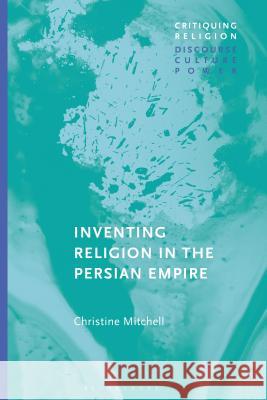Inventing Religion in the Persian Empire » książka
Inventing Religion in the Persian Empire
ISBN-13: 9781350032422 / Angielski / Twarda / 2021 / 256 str.
This book argues that the kings of the Persian Empire, in contrast to their reputation as benevolent and tolerant rulers, exerted significant control over religious practices to the point of creating and regulating local religions. Recently published materials from different parts of the empire, along with well-known finds, show the Persian rulers and administrators as obsessive micro-managers in many areas: so why would religious and local cultural practices be any different? Drawing on case studies from different parts of the central and western empire—the areas with the most evidence— Christine Mitchell shows the impact the Persians had on their subjects in Persia, Babylonia, Anatolia, Egypt, and Judea. In deconstructing the myth of Persian imperial benevolence by critically reviewing the ideology of the Persian royal inscriptions, this book offers a new interpretation of the Empire’s religious policy, one that argues for a much closer engagement of the state with local religious practice. This book is essential reading for anyone studying in the theory and methodology of the study of religion, as well as the Persian Empire and religion in antiquity.











